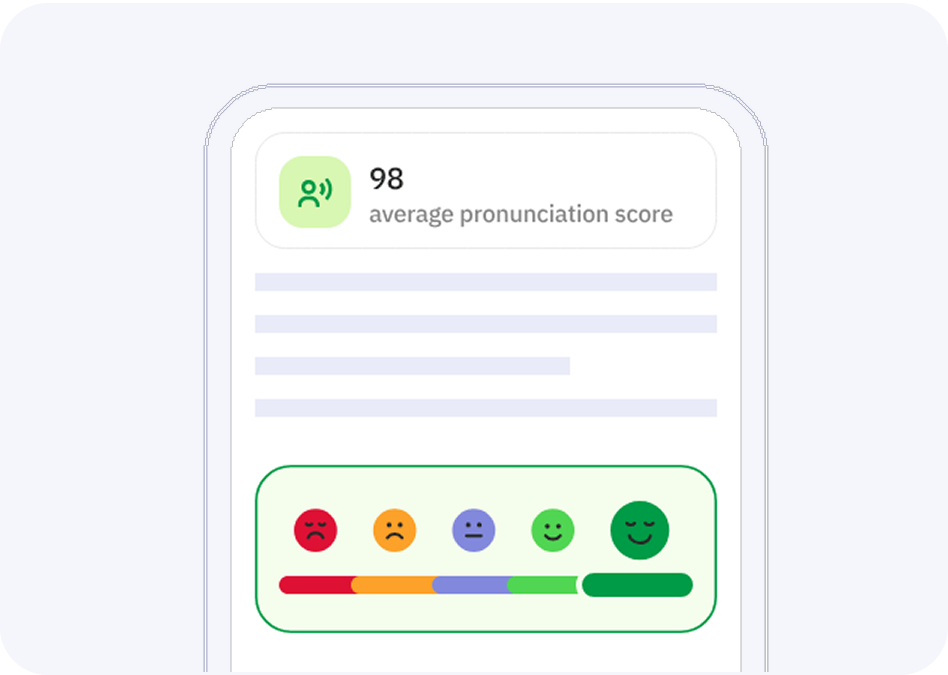How to Learn English With AI
Learning English can open up a world of opportunities, from enhancing your career prospects to easing travel experiences. Whether you’re a beginner or looking to advance your fluency, this guide provides practical tips and resources, such as Talkpal AI, to help you master the English language effectively. Dive into our detailed exploration of the best strategies to learn English successfully.

The talkpal difference

Personalized Education
Every person has a distinct method of absorbing information. Through Talkpal technology, we have the capacity to analyze the study patterns of millions of users at the same time. This data allows us to build highly effective educational structures that are fully tailored to match the specific needs and interests of every student.

Cutting-Edge Technology
Our main goal is to lead the way in providing universal access to a custom-tailored learning journey. We accomplish this by leveraging the most recent breakthroughs in modern innovation to ensure every user benefits from sophisticated tools and AI tutoring.

Making Learning Fun
We have transformed the study process into an entertaining activity. Since maintaining momentum can be difficult in an online setting, we built Talkpal to be incredibly captivating. The platform is so engaging that people often prefer acquiring new language skills with our app rather than playing video games.
LANGUAGE LEARNING EXCELLENCE
The most efficient way to learn a language
Try Talkpal for freeHow to Learn English: A Comprehensive Guide
1. Set Clear Learning Goals
Establish specific, measurable, and realistic goals to keep your English learning journey on track. Whether it’s improving your conversational skills, mastering grammar, or enlarging your vocabulary, clear objectives will help you stay motivated and measure your progress. Setting milestones like completing a certain number of Talkpal AI lessons each week can provide structure and encourage consistent practice.
2. Immerse Yourself in the Language
Immersion is one of the most effective ways to learn English. Surround yourself with the language by listening to English music, watching movies and TV shows, or tuning into English podcasts and radio stations. Change your phone and computer settings to English to make your daily interaction with technology a learning experience. This constant exposure helps familiarize you with various accents and dialects while improving listening skills.
3. Utilize Language Learning Apps
Integrate technology into your learning with tools like Talkpal AI, an AI-driven platform that offers interactive language learning experiences. Apps like these use advanced technology to tailor lessons according to your proficiency level and learning pace. Features often include speech recognition to improve pronunciation, practical conversational practice, and grammar exercises that make learning engaging and effective.
4. Practice Regularly
Consistency is key when learning any new language. Dedicate specific times of the day for English practice to develop a routine that supports language acquisition. Engage in different types of practice such as writing emails, speaking with native speakers, or using Talkpal AI for guided practice. This varied approach helps reinforce learning and effectively builds all your language skills.
5. Join English Learning Communities
Connect with other learners by joining English-speaking clubs or online communities. Interaction with fellow learners and native speakers enhances your speaking abilities and offers practical exposure to colloquial terms and slang. Participate in discussions, which can provide real-time feedback and opportunities to practice English in a supportive environment.
6. Read in English
Reading expands vocabulary and enhances comprehension skills. Start with straightforward content that you find interesting—be it books, newspapers, or blogs. Gradually, as your confidence builds, progress to more complex texts. Consider using resources like e-readers that allow you to quickly look up new words, thus facilitating smoother and more effective learning.
7. Take a Language Course
Enroll in a structured English course if you prefer a more traditional educational approach. Many language schools offer courses tailored to various levels, from beginner to advanced. These courses often provide a comprehensive curriculum that includes grammar, vocabulary, speaking, and writing skills, taught by experienced instructors who can provide personalized feedback.
8. Leverage English Media
Integrate media into your learning plan. Watch English news channels, listen to English music, or follow your favorite English-speaking influencers on social media. This not only helps in common phrases and idioms but also keeps you updated with contemporary language usage and popular culture.
9. Travel or Study Abroad
If possible, travel to an English-speaking country. Immersion through travel allows you to practice English in real-life situations and understand the cultural context of the language more profoundly. Alternatively, consider summer programs or study abroad sessions that focus on language immersion.
10. Reflect and Adjust Regularly
Regularly evaluate your progress and adjust your learning strategies as necessary. Reflect on what works best for you—whether it’s visual learning through movies, auditory learning through podcasts, or verbal practice through conversation. Keep experimenting with different methods and resources, like Talkpal AI, to find what truly helps you advance your English skills efficiently.
By incorporating these tips into your language learning routine, you can enhance your English skills in engaging and effective ways. Remember to enjoy the journey and celebrate each milestone in your path to English proficiency.
The most efficient way to learn a language
Try Talkpal for freeFrequently Asked Questions
How long does it usually take to learn English?
Is it necessary to live in an English-speaking country to become fluent?
What are the best resources for improving English pronunciation?
Can social media help in learning English?
What is the best way to enhance English vocabulary?







